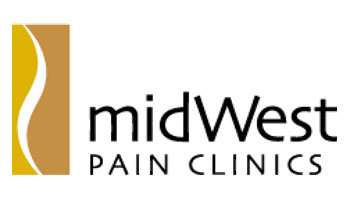It’s no secret that high blood pressure can be a severe health issue. Left untreated, it may lead to heart attack, stroke, and even death. But what you may not know is that pain may be one of the causes of high blood pressure.
Chronic pain like migraines, nerve pain, and lower back pain can cause a person’s body to release certain hormones like adrenaline and cortisol. These hormones can increase a person’s heart rate and blood pressure. In some cases, chronic pain can even lead to hypertension.
A pain management doctor helps diagnose and treat these conditions, which can help reduce a person’s risk of developing high blood pressure.
Read more: Signs You Need to See a Pain Management Doctor.
This article will explore the link between pain and high blood pressure and discuss how you can get your blood pressure under control.
Symptoms of Chronic Pain Associated With High Blood Pressure
Here are the most common types of chronic pain associated with high blood pressure:
Back Pain –
One of the most frequent causes of high blood pressure is lower back pain. Research has found that individuals who experience chronic low back pain are more likely to have higher systolic and diastolic blood pressures.
Neck Pain –
People who suffer from chronic neck pain may also experience high blood pressure due to stress and tension in the area.
Headaches –
Chronic headaches can be a symptom of high blood pressure. This is because as the headache intensifies, it causes additional strain on the body’s vascular system, which can increase blood pressure.
Joint Pain –
People who experience chronic joint pain, whether due to arthritis or other conditions, often struggle with high blood pressure. The joint pain inflammation can raise stress hormones and activate the body’s fight-or-flight response, leading to elevated blood pressure.
How Does Acute Pain Affect Blood Pressure?
Acute pain, or the type of pain that comes on suddenly and lasts for a short period, can cause your blood pressure to rise temporarily. This is because when you experience acute pain, your body releases hormones like adrenaline and cortisol, which trigger a “fight-or-flight” response. This response puts your body in a state of increased alertness and heightened tension, which can cause your blood pressure to go up.
How Chronic Pain Affects Blood Pressure?
Chronic pain, which lasts longer than three months, is more likely to impact your blood pressure levels. These include headaches, back pain, arthritis, fibromyalgia, and other conditions. When you experience chronic pain, the body’s natural response is to increase blood pressure to support essential functions.
For example, long-term stress increases your body’s production of cortisol, the hormone that regulates pain and inflammation. As cortisol levels rise, your heart rate raises your blood pressure.
Tips for Managing Pain and Spiked Blood Pressure
a) Eat a healthy, balanced diet. Eating a diet full of fruits, vegetables, and whole grains can help reduce inflammation associated with chronic pain. By reducing this inflammation, you may lessen the effects of pain on your blood pressure.
b) Get regular exercise. Regular physical activity can help reduce pain and high blood pressure levels by lowering stress hormones. Exercise helps to strengthen your heart muscle, which can keep your blood pressure in check.
c) Practice relaxation techniques. Deep breathing, yoga, and meditation can help reduce pain impacts on high blood pressure levels by helping to reduce stress and relax the body.
d) Avoid alcohol and smoking. Cigarette smoking and alcohol consumption can increase your blood pressure, further exacerbating chronic pain.
e) Talk to your doctor. You must talk to a healthcare provider if you are experiencing chronic pain and high blood pressure. They may suggest medications or treatments that can help manage both conditions.
Contact Midwest Clinics, the best pain clinic. We offer treatments for various chronic pains, including headaches, shoulder pain, and more.

